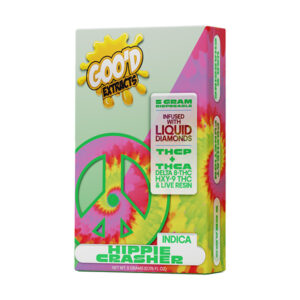Sustainable Innovation: How 5G Disposable Products Are Changing the Game
Introduction to Sustainable Innovation
Sustainable innovation is no longer just a buzzword; it’s becoming a necessity in today’s world. As our planet faces unprecedented environmental challenges, businesses and consumers alike are seeking more responsible solutions. Enter 5G disposable products—a new wave of technology that promises to redefine the way we think about disposables. Imagine items designed for convenience while being eco-friendly at the same time. With rapid advancements in 5G technology, these innovative products are not only efficient but also pave the way for sustainability like never before. Let’s dive into how 5G disposable products are changing the game and what it means for our future!
What are 5G Disposable Products?
5G disposable products represent a new frontier in the realm of convenience and technology. These items leverage cutting-edge 5G networks, designed to enhance functionality without compromising sustainability.
Imagine everyday essentials that are more than just single-use. They integrate advanced materials and smart sensors, ensuring seamless communication with other devices. This connectivity allows for real-time monitoring and data collection.
From smart medical devices to eco-friendly packaging solutions, these products adapt quickly to user needs. The aim is not only improved performance but also reduced environmental impact compared to traditional disposables.
As consumers become increasingly conscious of their ecological footprint, 5G disposables offer an innovative alternative that merges utility with responsibility. They’re poised to redefine our relationship with disposable goods in a tech-driven world.
Comparative Analysis of 5G Disposable Products and Traditional Options
5G disposable products represent a significant shift from traditional options. They leverage advanced technology to enhance functionality and efficiency.
Traditional disposable items often rely on basic materials with limited performance. In contrast, 5G disposables are designed for smarter interactions, focusing on connectivity and user experience.
For instance, while standard plastic straws serve their purpose, 5G-enabled versions can monitor usage patterns and send data to improve recycling initiatives. This data-driven approach fosters a more sustainable lifecycle for these products.
Moreover, the durability of 5G disposables tends to be superior. With better materials and innovative designs, they reduce waste over time compared to their conventional counterparts.
Cost-effectiveness also plays a role in this comparison. Although initial investments may be higher for 5G disposables, long-term savings arise from reduced environmental impact and enhanced operational efficiencies. Users see value not just in convenience but also sustainability efforts that resonate with today’s eco-conscious consumer base.
How 5G Technology is Revolutionizing Disposable Products
5G technology is reshaping the landscape of disposable products in remarkable ways. With its ultra-fast data transfer and low latency, manufacturers can now monitor production processes in real-time. This means higher efficiency and reduced waste.
Smart sensors embedded in 5G disposable items allow for better tracking and recycling practices. These advancements lead to improved resource management throughout the product lifecycle.
The integration of IoT with 5G opens new avenues for customization. Companies can tailor their offerings based on consumer behavior, ensuring that disposables are not just one-size-fits-all but meet specific needs while minimizing excess.
Moreover, enhanced connectivity enables a seamless flow of information between consumers and producers. Feedback loops become instantaneous, driving innovation at an unprecedented pace. The result? A more sustainable approach to creating disposable products that align with modern ecological demands.
Examples of 5G Disposable Products and Their Benefits
5G disposable products are paving the way for innovative solutions across various industries. For instance, smart medical devices like 5G-enabled diagnostic tests offer rapid results on-site. These single-use items reduce contamination risks and improve patient outcomes.
In the food service sector, 5G-connected disposable utensils enhance dining experiences by providing real-time feedback to restaurants. They can monitor temperature and freshness, ensuring that customers receive quality meals every time.
Another exciting example is in agriculture where 5G-powered sensors embedded in biodegradable plant tags collect vital data about soil health and moisture levels. This leads to more sustainable farming practices while minimizing waste.
Each of these products showcases how advanced technology can create efficient alternatives that benefit both consumers and manufacturers alike. The integration of connectivity into disposables opens up endless possibilities in product design and functionality.
Challenges and Limitations of 5G Disposable Products
While 5G disposable products offer exciting innovations, they come with their own set of challenges. One major concern is the environmental footprint associated with their production. Even though these products are designed for convenience, materials used may not always be eco-friendly.
Cost is another factor to consider. The advanced technology behind 5G disposables can drive up prices compared to traditional options. This might limit accessibility for some consumers and businesses.
There’s also the issue of infrastructure compatibility. Many regions still lack robust networks that support 5G capabilities effectively, which affects usability in diverse settings.
Moreover, consumer awareness plays a crucial role. Not everyone understands the benefits or applications of these new products, leading to hesitation in adoption.
Regulatory hurdles can impede widespread implementation as governments grapple with safety standards and compliance requirements specific to this innovation.
Environmental Impact of 5G Disposable Products
The environmental impact of 5G disposable products is a topic that requires careful consideration. On one hand, these innovations promise enhanced efficiency and reduced waste through smarter design and materials.
However, the rapid production cycles can lead to increased resource extraction. This raises concerns about sustainability practices in manufacturing processes. The reliance on non-biodegradable components poses risks to ecosystems if not properly managed.
Moreover, while 5G technology enables improved recycling methods, the actual implementation is still evolving. Effective waste management systems are crucial for minimizing landfill contributions from these products.
The balance between technological advancement and ecological responsibility remains delicate. Stakeholders must prioritize sustainable development alongside innovation to ensure positive outcomes for our planet’s health. As we navigate this landscape, understanding both benefits and drawbacks will be paramount for future growth.
The Future of Sustainable Innovation with 5G Technology
The future of sustainable innovation is vibrant and promising, especially with the integration of 5G technology. As industries evolve, 5G opens new avenues for creating smarter disposable products that reduce waste.
Imagine sensors embedded in packaging that communicate real-time data about usage and recycling options. This capability enhances product lifecycle management and encourages responsible consumer behavior.
Moreover, 5G enables rapid advancements in materials science. Researchers can develop biodegradable composites faster than ever before. These innovations not only minimize environmental impact but also meet growing consumer demand for eco-friendly alternatives.
As businesses adopt these technologies, we will see a shift toward circular economies where products are designed to be reused or recycled efficiently. The synergy between 5G and sustainability is poised to redefine how we approach disposables, driving us closer to a greener future.
Conclusion: The Role of 5G Disposable Products in Modern Technology
The emergence of 5G disposable products marks a pivotal shift in modern technology. These innovations blend convenience with sustainability, offering alternatives that meet the demands of an ever-evolving society. As industries embrace the benefits of 5G connectivity, we witness a remarkable transformation in how disposable items are designed, produced, and utilized.
With rapid data transfer and enhanced communication capabilities, these products allow for smart designs that can adapt to user needs while minimizing waste. The integration of IoT technologies further boosts efficiency by optimizing resource usage throughout their lifecycle.
However, it is crucial to navigate the challenges posed by these advancements carefully. While they promise incredible potential for reducing environmental impact and improving usability, there remains a responsibility to ensure responsible production practices and end-of-life management.
As we look forward, the role of 5G disposable products will likely continue expanding across various sectors—healthcare, packaging, consumer electronics—and beyond. They symbolize not just innovation but also our collective commitment to creating a more sustainable future where technology works harmoniously with nature. Embracing this new wave could lead us toward smarter solutions that benefit both consumers and the planet alike.






